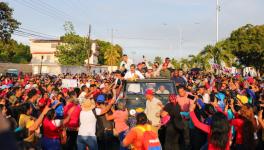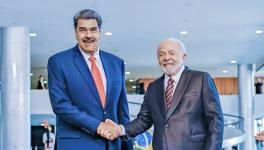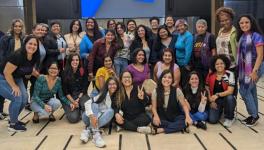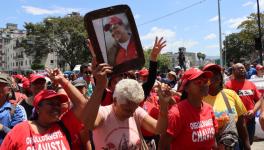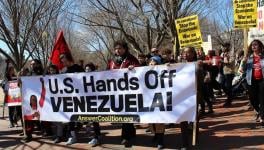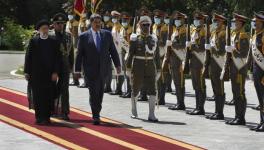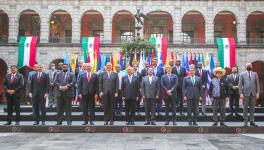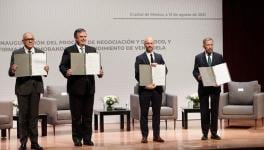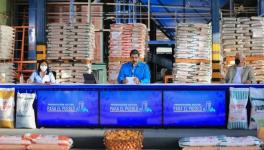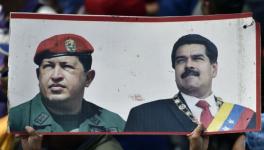Bolivarian Venezuela prepares for elections while opposition remains divided
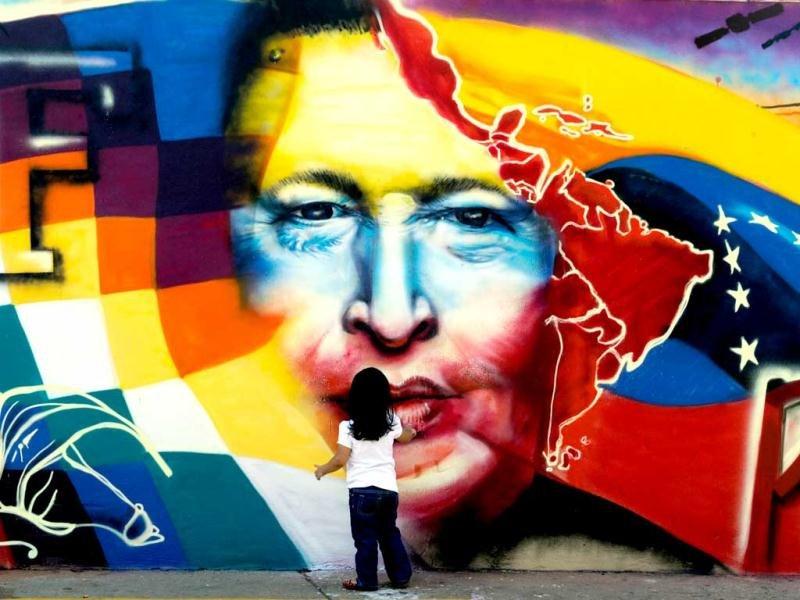
On May 20, citizens of the Bolivarian Republic of Venezuela will return to the polls to decide who will be the next President of the country. Current Venezuelan President Nicolás Maduro is the projected winner. This will be the fifth round of elections in Venezuela since Hugo Chavez was elected in 1998. The elections take place at an extremely difficult time. While the political crisis that engulfed major parts of the country in violence and chaos around the same time time last year has subsided, a different sort of violence and warfare continues to be waged on the Venezuelan people through harsh economic sanctions that have affected the country’s foreign trade, currency and access to basic goods and medicines.
Despite the difficult panorama and the dire economic conditions, most people are quite optimistic regarding the elections. The right wing forces have suffered a huge blow to their legitimacy and weakened after the four long months of violence that they waged against the Venezuelan state and its supporters in 2017, which resulted in the death of at least 125 people. Despite a strong campaign of threats and intimidation waged by the right wing to impede voting in the National Constituent Assembly elections, people turned out en masse to participate in them. This outstanding show of support forced the right wing to literally retreat from the streets.
In October 2017, the elections for posts of governor were held and Chavismo won 18 of the 23 governorships in a process in which 61.14% of the eligible voting population participated. In December, the municipal elections were held with 47.36% of the voting population participating and the PSUV (United Socialist Party of Venezuela, Maduro’s party) winning the majority of the the contested Mayors’ offices.
Following the right wing’s retreat from the streets and defeat in the polls, there have also been deep divisions and disputes within the opposition block and its different parties about how to confront the Bolivarian government led by Nicolás Maduro.
Sectors represented by the Democratic Unity Roundtable (MUD) platform have called for a full boycott of the elections and taken a stance of non-recognition of the government, elections and the National Constituent Assembly. They rely on the US and European Union sanctions and isolation policies to starve the country and ultimately cause regime change.
Other sectors led by presidential candidate Henri Falcon, supported by the Progressive Advance formation, the Movement for Socialism (MAS) and a fraction of the COPEI (Social Democratic) party recognize the need to engage with the government, the democratic processes and institutions of the country.
The other candidates are Reinaldo Quijada of the Popular Political Unity and Javier Bertucci, an evangelical pastor from the Hope for Change party.
One of the reasons stated by the MUD opposition camp for boycotting the elections is the claim that the electoral system is unreliable and it is almost certain that there will be fraud. This position is also supported by the US and its allies.
On May 7, while addressing the Organization of American States, US Vice-President Mike Pence stated: “In short, there will be no real election in Venezuela on May 20th, and the world knows it. It will be a fake election, with a fake outcome. Maduro and his acolytes have already ensured that their reign of corruption, crime, narco-trafficking, and terror will continue. He called on the government to suspend the elections and hold “real ones”.
However, the Venezuelan electoral system has been lauded by numerous international observers for its transparency and checks in voting and scrutiny. Even former US president Jimmy Carter stated “Of the 92 elections that we’ve monitored, I would say that the election process in Venezuela is the best in the world.”
For greater detail on Venezuela’s electoral process read more: Explained: How Voting Works in Venezuela
Furthermore, the focus of the US and its allies on the Venezuelan electoral system is interesting especially when taking into account the presidential elections in Honduras held last November. Even after the Organization of American States denounced the widespread fraud and irregular proceedings, the results (which were announced nearly three weeks after the day of voting) were immediately recognized by the US government.
In the run-up to the elections, Venezuelan social movements and their allies abroad are mobilizing to denounce the attacks by the US on their sovereignty. They have also called on voters to participate actively in the elections to take forward the process of social transformation initiated with Hugo Chavez and continued with Nicolás Maduro.
Get the latest reports & analysis with people's perspective on Protests, movements & deep analytical videos, discussions of the current affairs in your Telegram app. Subscribe to NewsClick's Telegram channel & get Real-Time updates on stories, as they get published on our website.









